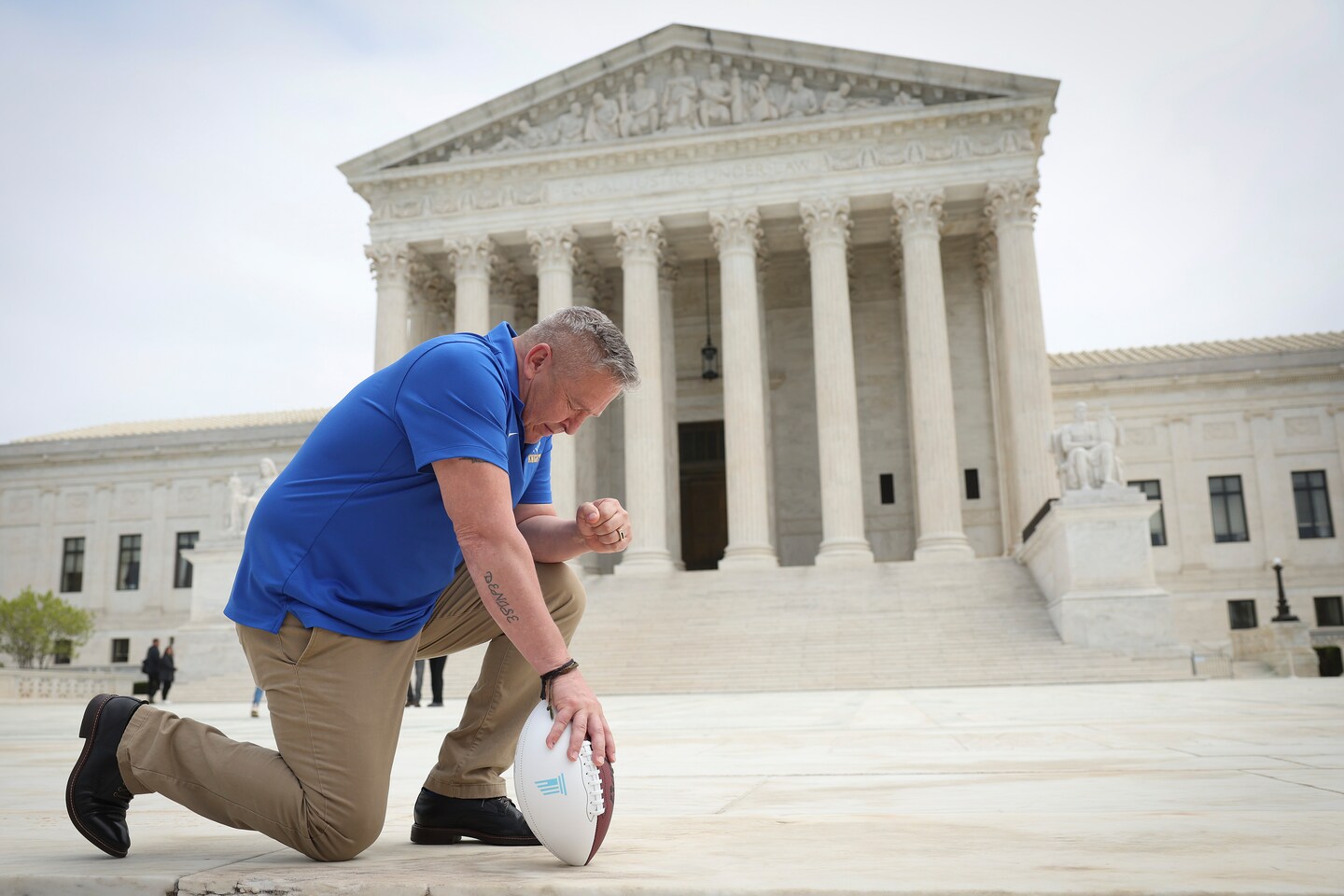As The Washington Post’s Robert Barnes noted in his coverage of Kennedy, these decisions joined others from the court this session in which religious interests were bolstered. In each case, the interests at stake were Christian: a Baptist pastor, a Christian flag, a Christian coach and Christian private schools.
It’s an unsurprising development from this staunchly conservative (and often overtly religious) court. But it’s one that is worth considering in the context of broader societal trends. The Supreme Court is empowering Christianity as the United States becomes less religious. It’s blurring the line between church and state as Republican officials like Rep. Lauren Boebert (R-Colo.) advocate for religion to play more of a role in politics.
That demand has a cause. White Christians are a fundamental part of the Republican base of power — and White Christians make up a declining portion of the country and the electorate.
Earlier this month, Gallup released data tracking the extent to which Americans say they believe in God. Most Americans still do — 4 in 5, to be specific. That’s down from 98 percent in 1968 (which, if you’re curious, was several years after prayer was banned in schools).
But that’s also an incomplete picture of how Americans consider religion. Data from the biennial General Social Survey (GSS) show that while most Americans believe in God, only about half say they believe in God without harboring any doubts.
This tracks with the increase in the number of Americans who have stepped away from organized religion or religion altogether. One result of that shift is that the percentage of Americans who said they were Christian in the GSS has declined from about 90 percent until 30 years ago to about two-thirds in the most recent survey.
That’s in part because the United States is becoming more diverse in a variety of ways. One way is that the percentage of the country that is White (or, as formally measured by the U.S. government, non-Hispanic White) has declined in recent decades.
Fewer Christians and fewer White Americans means that there are fewer White Christians in the United States. In GSS’s most recent survey for which the data are available, about half of the country identifies as both White and Christian, down from about 4 in 5 in the late 1970s.
White Christians are still a majority, as are Christians in general. But this decline undoubtedly contributes to a sense among Republicans that Christians are embattled in the United States. In polling conducted by YouGov in June 2021, 63 percent of Republicans said that Christians faced “a great deal” or “a fair amount” of discrimination — a significantly higher percentage than said Hispanics, gay Americans or Black Americans faced that amount of discrimination.
None of this is to say that the Supreme Court is explicitly trying to backstop the power of Christian or White Christian Americans. It is, instead, to again point out that the imbalance in the allocation of power to more rural parts of the country — and therefore more White and often more Christian parts of the country — helped Donald Trump become president and Republicans to secure a majority of the Senate. That, in turn, helped build a robust conservative majority on the court that reflected a sympathy for allowing overlap between government power and religion. And Christianity.
The right’s reaction to the court’s recent decisions has been broadly enthusiastic.
